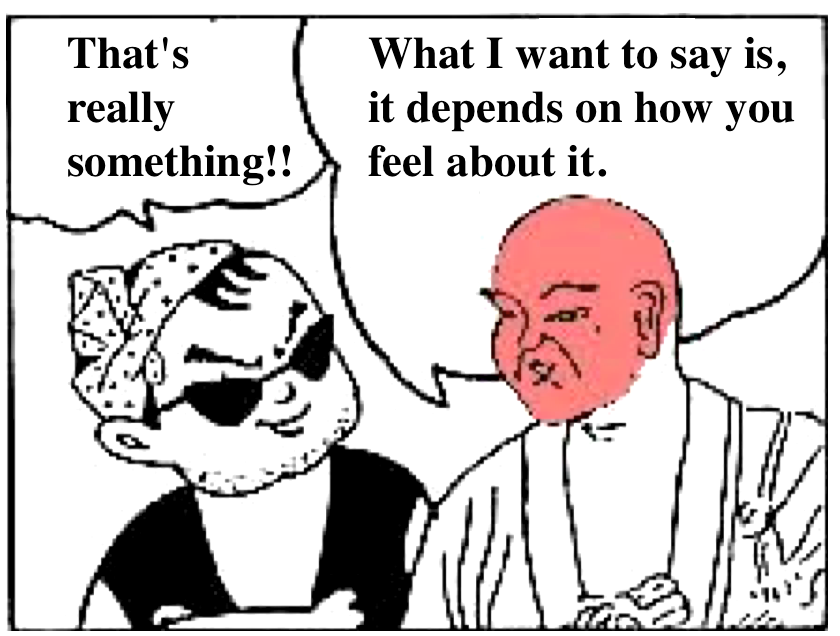
デジタル・フィールドワーク
Digital
fieldwork
☆
オンライン・コミュニティを研究するデジタル人類学者の多くは、人類学の伝統的な研究手法を用いている。それがまさに、デジタル・フィールドワークであ
る。彼らはオンライン・コミュニティに参加し、その慣習や世界観を学び、その観察結果を個人インタビュー、歴史研究、定量的データで裏付けている。彼らの
成果はエスノグラフィーであり、経験と分析の質的記述である。
他の人類学者や社会科学者たちは、ウェブサイトやサーバーから収集したデータを重視する研究を行っている。しかし、学術関係者は、Facebookのよう
なソーシャルメディア企業やアクシオムのようなデータマイニング企業と同規模のユーザーデータにアクセスする際にしばしば困難に直面する。
方法論に関しては、オンラインのみで調査を行うことが可能かどうか、あるいは調査対象をオンラインとオフラインの両方で総合的に研究しなければ完全なもの
にならないかについて意見が分かれている。仮想世界セカンドライフで3年間アバターとして研究を行ったトム・ベールストルフは、前者のアプローチを支持
し、被験者と「彼ら自身の言葉で」関わることは可能であるだけでなく、必要であると主張している。[20][要出典][21]
ダニエル・ミラーなどの他の人々は、民族誌学的研究では被験者のインターネット外での生活について学ぶことを除外すべきではないと主張している。[9]
| Digital
fieldwork Many digital anthropologists who study online communities use traditional methods of anthropological research. They participate in online communities in order to learn about their customs and worldviews, and back their observations with private interviews, historical research, and quantitative data. Their product is an ethnography, a qualitative description of their experience and analyses. Other anthropologists and social scientists have conducted research that emphasizes data gathered by websites and servers. However, academics often have trouble accessing user data on the same scale as social media corporations like Facebook and data mining companies like Acxiom. In terms of method, there is a disagreement in whether it is possible to conduct research exclusively online or if research will only be complete when the subjects are studied holistically, both online and offline. Tom Boellstorff, who conducted a three-year research as an avatar in the virtual world Second Life, defends the first approach, stating that it is not just possible, but necessary to engage with subjects “in their own terms”.[20][citation needed][21] Others, such as Daniel Miller, have argued that an ethnographic research should not exclude learning about the subject's life outside the internet.[9] Digital technology as a tool of anthropology The American Anthropological Association offers an online guide for students using digital technology to store and share data. Data can be uploaded to digital databases to be stored, shared, and interpreted. Text and numerical analysis software can help produce metadata, while a codebook may help organize data. |
デジタル・フィールドワーク オンライン・コミュニティを研究するデジタル人類学者の多くは、人類学の伝統的な研究手法を用いている。彼らはオンライン・コミュニティに参加し、その慣 習や世界観を学び、その観察結果を個人インタビュー、歴史研究、定量的データで裏付けている。彼らの成果はエスノグラフィーであり、経験と分析の質的記述 である。 他の人類学者や社会科学者たちは、ウェブサイトやサーバーから収集したデータを重視する研究を行っている。しかし、学術関係者は、Facebookのよう なソーシャルメディア企業やアクシオムのようなデータマイニング企業と同規模のユーザーデータにアクセスする際にしばしば困難に直面する。 方法論に関しては、オンラインのみで調査を行うことが可能かどうか、あるいは調査対象をオンラインとオフラインの両方で総合的に研究しなければ完全なもの にならないかについて意見が分かれている。仮想世界セカンドライフで3年間アバターとして研究を行ったトム・ベールストルフは、前者のアプローチを支持 し、被験者と「彼ら自身の言葉で」関わることは可能であるだけでなく、必要であると主張している。[20][要出典][21] ダニエル・ミラーなどの他の人々は、民族誌学的研究では被験者のインターネット外での生活について学ぶことを除外すべきではないと主張している。[9] 人類学のツールとしてのデジタル技術 米国人類学会は、デジタル技術を使用してデータを保存・共有する学生向けのオンラインガイドを提供している。データはデジタルデータベースにアップロード して保存・共有・解釈することができる。テキストおよび数値分析ソフトウェアはメタデータの作成に役立ち、コードブックはデータの整理に役立つ。 |
| Ethics Online fieldwork offers new ethical challenges. According to the American Anthropological Association's ethics guidelines, anthropologists researching a community must make sure that all members of that community know they are being studied and have access to data the anthropologist produces. However, many online communities' interactions are publicly available for anyone to read, and may be preserved online for years. Digital anthropologists debate the extent to which lurking in online communities and sifting through public archives is ethical.[22] The Association also asserts that anthropologists' ability to collect and store data at all is "a privilege", and researchers have an ethical duty to store digital data responsibly. This means protecting the identity of participants, sharing data with other anthropologists, and making backup copies of all data.[23] |
倫理 オンラインでのフィールドワークは、新たな倫理的課題をもたらす。米国人類学会の倫理ガイドラインによると、コミュニティを研究する人類学者は、そのコ ミュニティの全構成員が研究対象となっていることを認識し、人類学者が作成したデータにアクセスできることを確認しなければならない。しかし、多くのオン ラインコミュニティのやりとりは誰でも閲覧可能であり、オンライン上に長期間保存される可能性もある。デジタル人類学者は、オンラインコミュニティに潜ん で公開アーカイブを調査することがどこまで倫理的であるかについて議論している。 また、協会は、人類学者がデータを収集し保存する能力そのものが「特権」であると主張しており、研究者はデジタルデータを責任を持って保存する倫理的義務 を負っている。これは、参加者の身元を保護し、データを他の人類学者と共有し、すべてのデータのバックアップコピーを作成することを意味する。[23] |
| https://en.wikipedia.org/wiki/Digital_anthropology |
・デジタル人類学 |
リ ンク
文 献
そ の他の情報
Copyleft, CC, Mitzub'ixi Quq Chi'j, 1996-2099
☆
 ☆
☆